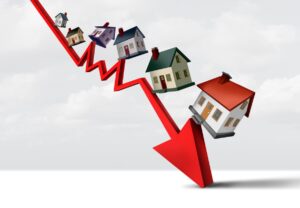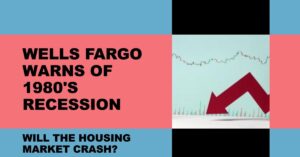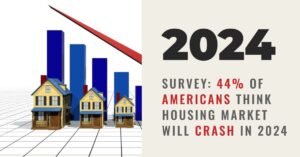The question of whether housing will become more affordable if the market crashes in 2025 is a complex one, with various factors influencing the potential outcome. A market crash can indeed lead to a decrease in housing prices, as seen historically, but the extent and duration of such a decrease depend on the underlying economic conditions, the reasons for the market downturn, and the response from policymakers.
Here’s a detailed analysis based on current trends and expert predictions.
Economic Context and Predictions
Current Housing Market Trends
- Housing prices have been elevated due to limited supply and high demand, exacerbated by rising mortgage rates over the past few years. However, recent trends indicate that mortgage rates are beginning to decline, which may improve affordability for potential buyers.
- Predictions for 2025 suggest that while home prices may continue to rise, the rate of increase is expected to slow down significantly. For instance, estimates indicate growth rates could be around 2% to 3.9% year over year by the end of 2025.
Impact of a Market Crash
- Historically, a stock market crash can lead to decreased consumer confidence and spending, which can indirectly affect the housing market. A significant drop in the stock market (e.g., a 20% decline) often results in higher unemployment rates, which can reduce the number of potential homebuyers.
- However, it’s important to note that a stock market crash does not automatically equate to a housing market crash. In some cases, investors may turn to real estate as a safer investment during stock market downturns, potentially keeping demand stable or even increasing it.
Key Factors Influencing Housing Prices in 2025
- Mortgage Rates: As the Federal Reserve continues to cut interest rates, mortgage rates are expected to fall further. This could stimulate demand for housing, even if prices are predicted to rise at a slower pace[4].
- Supply and Demand Dynamics: The availability of homes for sale plays a critical role in determining prices. If more homeowners decide to sell due to falling mortgage rates, this could increase supply and potentially stabilize or lower prices. Conversely, if demand outstrips supply due to lower rates attracting more buyers, prices could continue to rise[3][4].
- Economic Sentiment: The overall economic climate will influence buyer behavior. If a crash leads to widespread job losses and economic uncertainty, consumer confidence may plummet, leading to reduced demand for homes and potentially lower prices[1][2].
Factors That Could Influence Housing Affordability if the Market Crashes
Government Intervention
One of the key elements to consider is the role of government intervention. In past economic crises, government programs have been instrumental in stabilizing the housing market. For example, during the 2008 financial crisis, the federal government introduced measures such as the Home Affordable Modification Program (HAMP) and the Home Affordable Refinance Program (HARP), which helped many homeowners avoid foreclosure and stay in their homes. If a market crash were to occur in 2024, the government's response would likely play a significant role in determining the extent to which housing prices are affected.
Demographic Trends
Another factor to consider is the demographic trends driving housing demand. The Millennial generation, which has been entering the housing market in large numbers, is expected to continue to drive demand for the next several years. This sustained demand could help cushion the impact of a market crash on housing prices.
Shift in Work and Lifestyle Patterns
Additionally, the shift towards remote work, accelerated by the COVID-19 pandemic, has led to changes in housing preferences and demand patterns. Many people are seeking larger homes with dedicated office spaces, often in suburban or rural areas rather than urban centers. This trend could influence the housing market's resilience in the face of a downturn, as the demand for certain types of properties may remain strong.
Investor Activity
Investor activity is another variable that could affect housing prices during a market crash. Investors who purchase properties to rent out or flip have been a significant force in the housing market. Their actions in response to a crash—whether they decide to sell off properties or buy up more in anticipation of a recovery—could have a significant impact on housing prices.
Economic Environment
Finally, the state of the broader economy and the job market will be crucial in determining housing affordability. High levels of employment and income growth can support housing demand and prices, even during economic downturns. Conversely, if a market crash leads to widespread job losses and reduced consumer confidence, the demand for housing could decrease, leading to lower prices.
Summary: While a market crash could theoretically make housing cheaper, current trends and expert analyses suggest that a significant crash is not expected in 2025. Experts predict a cooling down rather than a dramatic crash. Instead, the market may experience a rebalancing, with slower price growth or minor adjustments. Therefore, you should keep a close eye on economic indicators and market forecasts, as these can offer valuable insights into future trends and potential shifts in affordability.







